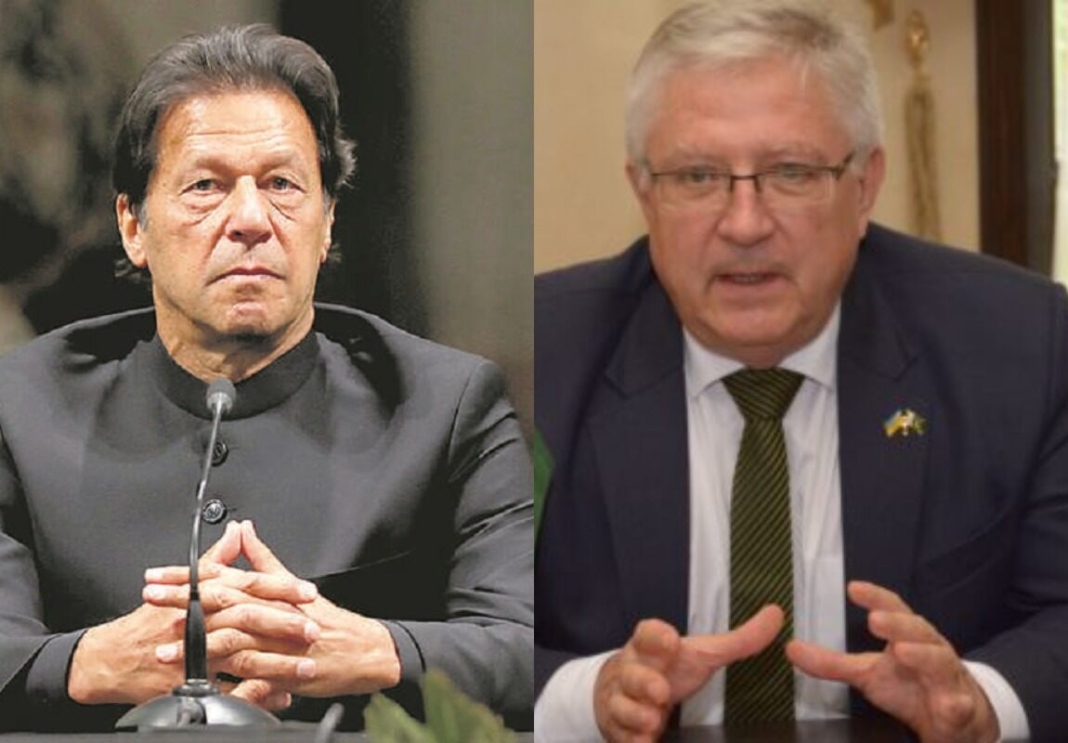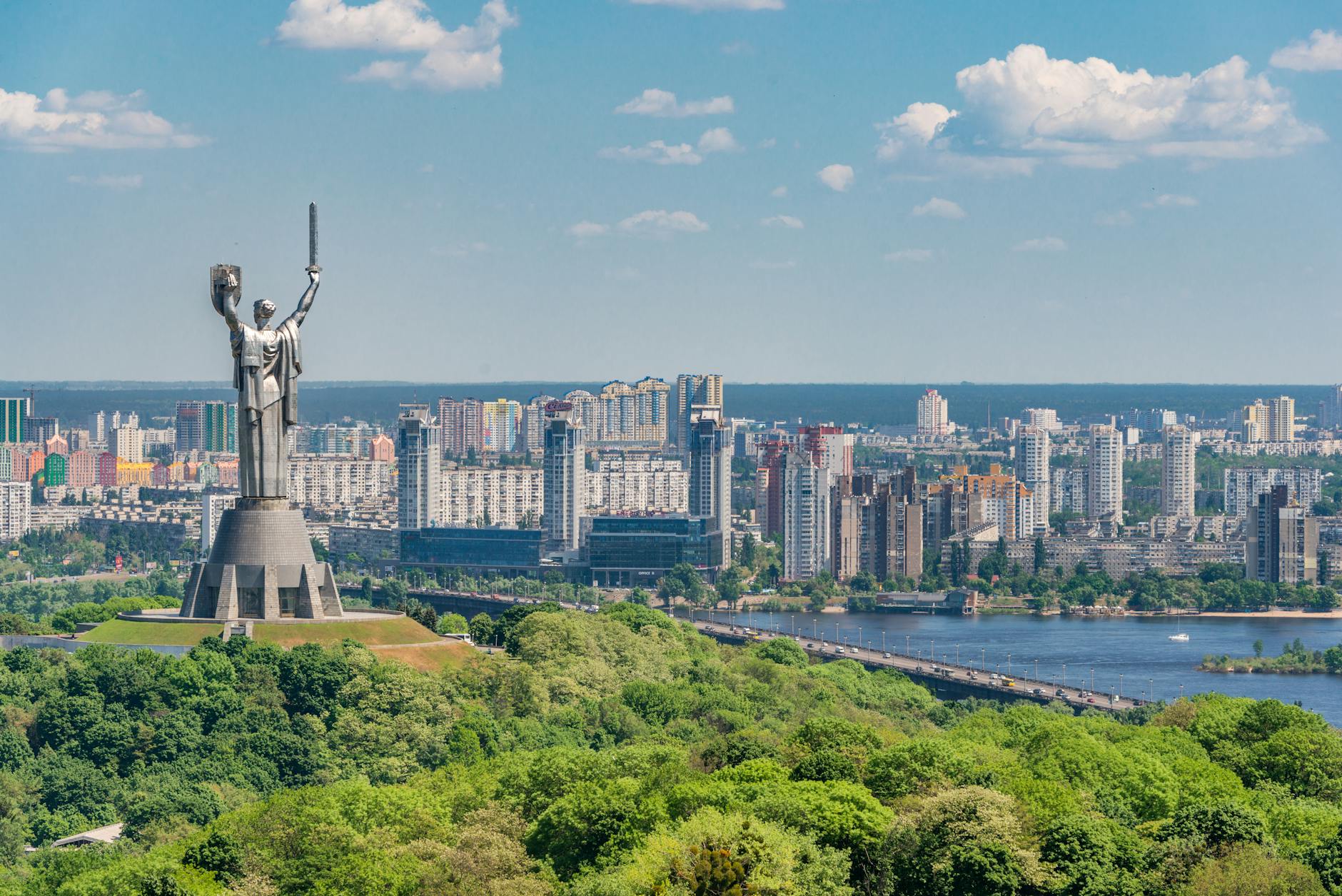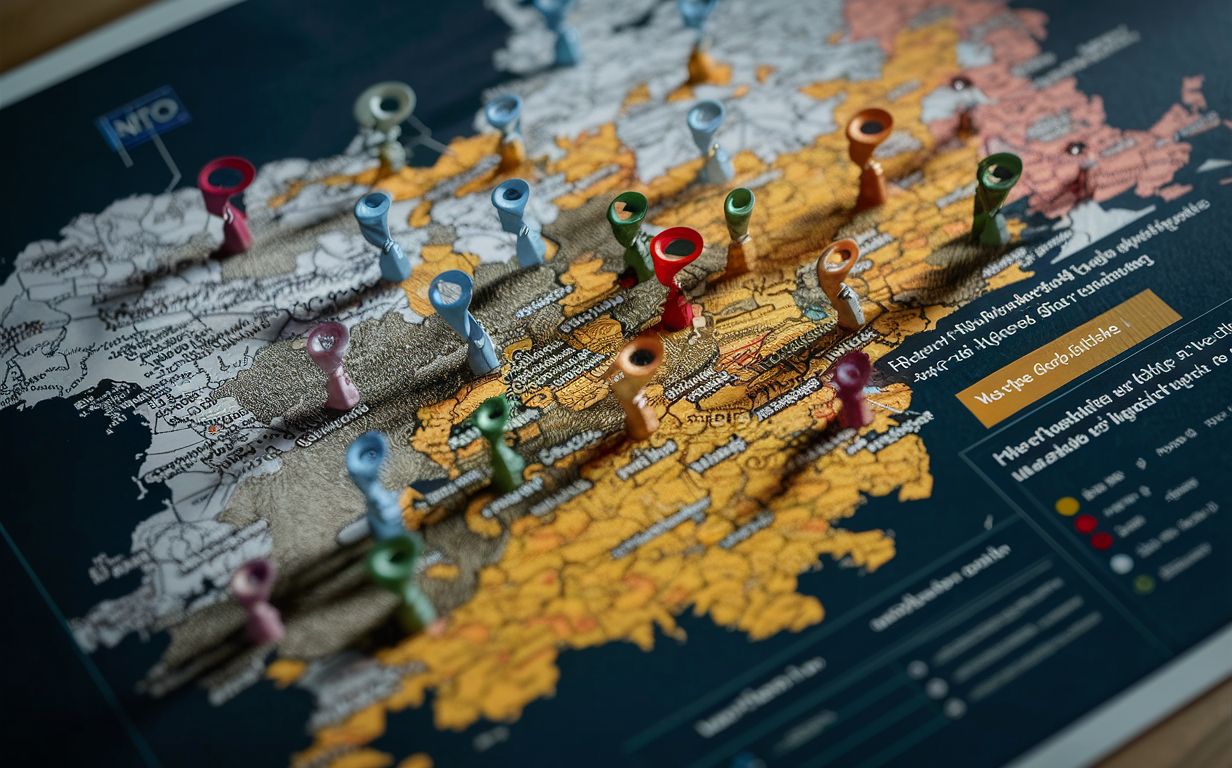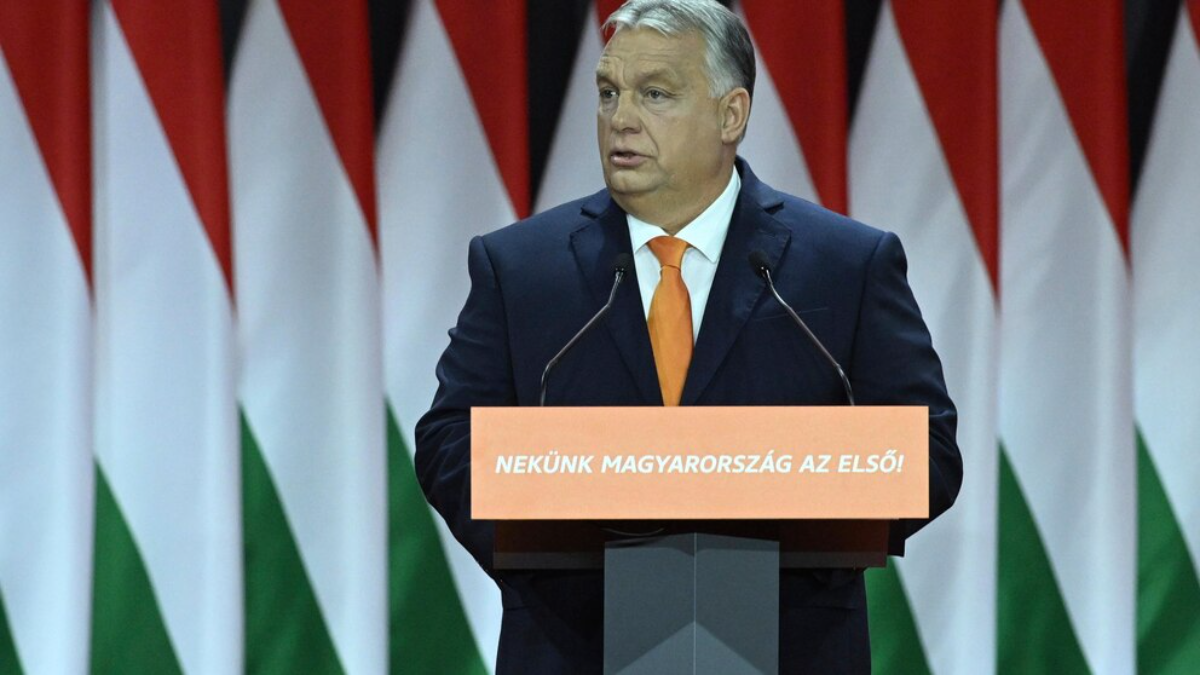Ukraine
Ukraine’s envoy to Pakistan appeals PM Khan to raise Ukraine conflict with Putin

Volodymyr Lakomov asks premier to play role to mitigate tensions as nuclear power
The Ukrainian ambassador to Pakistan appealed to Prime Minister Imran Khan to raise the issue of the Ukraine conflict during his meeting with Russian leadership in Moscow.
Addressing a press conference, Volodymyr Lakomov called on the premier to use this opportunity and play a role to mitigate rising tensions as a nuclear power. His comments come a day ahead of PM Khan’s scheduled visit to Russia on the invitation of President Vladimir Putin. The foreign office said in a statement that the premier will be accompanied by a high-level delegation, including members of the cabinet. It said that both countries enjoy friendly relations “marked by mutual respect, trust and convergence of views on a range of international and regional issues”.
Meanwhile, Putin has ordered that soldiers be deployed to the two pro-Russian separatist territories in Ukraine after he recognized them as independent late Monday. The comes after Russian president signed a decree that recognizes the he Donetsk People’s Republic (DPR) and Luhansk People’s Republic (LPR) in the Ukrainian provinces of Donetsk and Luhansk respectively as independent.
International news agency Reuters said that tanks and other military equipment were seen in the separatist controlled city of Donetsk following Putin’s order. The move was condemned by international quarters and sanctions from the United States.
Discover more from The Monitor
Subscribe to get the latest posts sent to your email.

Ukraine
The Future of Ukraine after the Russian Invasion: The Implications of War and the Way Forwardcible

The Russian invasion of Ukraine is not just a conflict of borders; it is a civilisational crucible. For decades, Ukraine grappled with a fragmented identity, pulled between East and West, its sovereignty a prize, not a certainty. The full-scale invasion of 2022 violently shattered that ambiguity, forging a nation defined by its resistance and an unyielding commitment to European democracy. The future of Ukraine will not be a return to the past, but a radical national reset, born from the ashes of war and built on the iron foundation of an irreversible, Western-aligned choice. This is the moment when unity must transmute into radical, irreversible reform, for the war’s end will only mark the beginning of Ukraine’s most profound and challenging battle: the fight for a prosperous, sovereign, and truly European soul.
Table of Contents
💔 The Enduring Cost and Geopolitical Rebirth
The human cost of this war defies the cold comfort of statistics. Beyond the tragic tally of lives lost and the millions displaced—a long-term demographic hole that will haunt the nation for generations—lies a profound, collective psychological wound. The national psyche is steeped in trauma, from the pervasive anxiety of constant shelling to the moral injury suffered by combatants and the grief of families. . Reintegrating millions of veterans, many with physical and “invisible wounds” like PTSD, alongside internally displaced persons (IDPs) and refugees, will be a decades-long task, stretching the capacity of an already-strained social and healthcare system. Current reintegration efforts, often fragmented and over-reliant on outdated benefit systems, must evolve into a comprehensive, trauma-informed “opportunity policy” that supports both the individual and their family, seeing veterans not as recipients of aid, but as national assets.
This existential threat has, paradoxically, clarified Ukraine’s geopolitical destiny. The unprovoked aggression has hardened the nation’s resolve, permanently sealing its “civilizational choice.” Any lingering doubt about whether Ukraine belongs to the Russian “sphere of influence” has been obliterated. The war has become the most powerful accelerator of the Euro-Atlantic integration project since the fall of the Berlin Wall. The path toward EU accession—now cemented as a constitutional goal—is complicated by the war’s instability and the vast scope of required legislative alignment. Yet, the process is an essential anchor for future stability and reform. Crucially, a post-war Ukraine cannot exist without strong, legally binding security guarantees. The non-binding promises of the 1994 Budapest Memorandum are a scar on the national memory. Ukraine needs a robust defense architecture—whether through full NATO membership once conditions allow, or an immediate, binding security treaty modeled on the US-Japan relationship—to deter future aggression and safeguard the billions in reconstruction investment. The only reliable guarantee is a permanent, technologically advanced self-defense capability backed by committed international partners.
🏗️ The Herculean Task of Economic Reconstruction
The task of rebuilding Ukraine is a financial and logistical challenge that invokes the scale of the post-WWII Marshall Plan, yet it faces a modern paradox. Current estimates for reconstruction stand in the hundreds of billions of Euros, a figure that is constantly rising. The complexity lies not just in the colossal sums, but in the intricate choreography of international funding. Mechanisms like the EU’s Ukraine Facility must be coordinated with capital derived from the frozen Russian assets. The legal and financial architecture for using these $200+ billion sovereign funds—potentially via a “reparations loan” backed by the interest generated—is a necessary, moral, and strategically essential mechanism to make the aggressor pay for the destruction, securing predictable, long-term financing that private investors require.
This destruction, however, offers a unique, tragic opportunity to “Build Back Better & Greener.” Instead of restoring obsolete Soviet-era infrastructure, Ukraine can leapfrog outdated technology. The focus must be on a green transition, prioritizing decentralized, resilient energy grids powered by renewables like solar and wind, especially given the vulnerability of centralized fossil-fuel power plants. This transition, alongside a strategic investment in the high-tech, IT, and defense sectors—where Ukraine already demonstrates world-class innovation—is the blueprint for attracting the massive private foreign investment necessary for long-term growth. Investment must move beyond mere charity and into genuine, mutually beneficial enterprise.
However, the greatest internal threat to this ambitious future is not Russian missiles but deep-seated corruption and the entrenched power of the oligarchy. Western aid and the prospect of EU membership hinge entirely on demonstrable, irreversible progress in de-oligarchisation. The war has, to some extent, financially weakened some oligarchs, but their corrosive political influence remains a structural challenge. The Anti-Corruption Litmus Test requires the full, independent operationalisation of anti-corruption agencies (NABU, SAPO, and the High Anti-Corruption Court) and the consistent, uncompromising application of the Anti-Oligarch Law. Failure to fundamentally dismantle these patronage networks would not only choke off the flow of reconstruction funds but would betray the sacrifices made on the battlefield. . Ukraine must prove its commitment to the rule of law not only for Brussels but for its own people, who deserve an economy built on competition and merit, not connections.
🧭 The Way Forward: Sovereignty, Security, and Scrutiny
The final architecture of Ukraine’s future must be built upon three pillars: sovereignty, Security, and Scrutiny.
The foundation of security architecture must be a long-term deterrent. Beyond whatever non-NATO security agreements are forged with G7 allies, Ukraine must maintain a technologically superior, permanently ready military, integrated into Western defense planning and supplied by a robust, indigenous defense industry. This is the ultimate self-guarantee.
The second pillar, Sovereignty, demands a profound Democratic Deepening. Strengthening democratic institutions and the rule of law in the shadow of war is uniquely difficult. The national unity forged in wartime must not be used as an excuse to centralize power or suppress legitimate political opposition and internal debate. The challenge is managing political rivalries while upholding the independence of the media—ensuring it is not recaptured by oligarchic interests—and delivering justice reform that is felt by the average citizen.
The final pillar is Scrutiny. Ukraine must embrace maximum transparency and accountability in its reconstruction, understanding that every Euro and dollar spent is a sacred trust. This scrutiny must come from its Western partners, its vibrant civil society, and its independent press.
The extraordinary national unity forged in war is a powerful, inspiring force. It demonstrated an unbreakable will to defend the nation’s independence. The Final Choice for Ukraine’s political class is whether that profound will can be translated into the excruciatingly difficult, often unpopular, but necessary political will to execute the radical reforms required for true European integration and a prosperous future. Will they choose the path of the Phoenix—a radical, meritocratic rebirth—or will they succumb to the weight of reconstruction and the insidious return of entrenched corruption? The world has committed to helping Ukraine win the war. Ukraine must now commit to winning the peace, by building a state that is not only whole but just and worthy of the sacrifice made. Failure to do so would be the final, most tragic victory for the aggressor.
Discover more from The Monitor
Subscribe to get the latest posts sent to your email.
NATO
Unpacking NATO’s Troop Deployments in Ukraine: Navigating the Path to Peace Amidst Nuclear Risks

Introduction
In recent times, the geopolitical landscape has been fraught with tensions, particularly surrounding NATO’s plans for troop deployments in Ukraine. The implications of such actions have sparked concerns about the potential for nuclear war. This article delves into the intricacies of NATO’s troop deployments in Ukraine and analyzes the risks associated with these manoeuvres.

Understanding NATO’s Troop Deployments in Ukraine:
NATO’s decision to deploy troops in Ukraine stems from a desire to bolster security in the region amidst escalating tensions with Russia. The alliance aims to support Ukraine’s sovereignty and deter further Russian aggression. However, these deployments have raised alarm bells due to the proximity to Russia’s borders and the potential for miscalculations that could lead to a dangerous escalation.
Assessing the Nuclear Threat:
The spectre of nuclear war looms large over any conflict involving major powers like NATO and Russia. The presence of troops in Ukraine increases the risk of inadvertent clashes that could spiral out of control, potentially leading to a catastrophic nuclear exchange. Understanding the dynamics of nuclear deterrence and the challenges it poses in a volatile situation is crucial in assessing the gravity of the situation.

Historical Context and Lessons Learned:
Drawing lessons from past conflicts and crises can provide valuable insights into how to navigate the current situation. Historical examples such as the Cuban Missile Crisis highlight the dangers of brinkmanship and the importance of clear communication channels to prevent misunderstandings that could trigger a nuclear catastrophe.
Diplomatic Efforts and De-escalation Strategies:
Amidst heightened tensions, diplomatic efforts play a crucial role in preventing conflicts from escalating into full-blown wars. Engaging in dialogue, promoting transparency, and seeking common ground are essential components of de-escalation strategies that can help defuse tensions and reduce the risk of nuclear confrontation.
The Role of International Organizations and Multilateral Cooperation:
International organizations like the United Nations play a pivotal role in mediating conflicts and promoting peaceful resolutions. Multilateral cooperation is essential in addressing complex security challenges and fostering stability in regions facing geopolitical tensions. Leveraging diplomatic channels through international platforms can help mitigate risks and prevent conflicts from spiralling out of control.
Conclusion:
As NATO’s troop deployments in Ukraine continue to provoke concerns about the specter of nuclear war, it is imperative for all parties involved to exercise restraint, prioritize dialogue over confrontation, and work towards peaceful resolutions. By understanding the risks involved, learning from history, and engaging in diplomatic efforts, we can navigate these turbulent times with caution and foresight.
Discover more from The Monitor
Subscribe to get the latest posts sent to your email.
European Union
A Pyrrhic Victory for Ukraine: Hungary’s Veto Casts a Shadow Over EU Membership Dream

In a night of stark contrasts, the European Union offered Ukraine a glimmer of hope by opening the door to membership, only to have Hungary slam it shut on crucial financial aid. While President Zelensky hailed the accession talks as a “victory,” the bitter sting of Hungary’s veto on a €50 billion aid package left a bitter aftertaste. This geopolitical chess game, unfolding amidst the backdrop of a brutal war, raises critical questions about solidarity, unity, and the true meaning of European values.
Hungary’s decision, orchestrated by Prime Minister Viktor Orbán, stands as a stark reminder that the path to EU membership is fraught with political hurdles. Orbán, a long-time critic of Ukraine’s President Zelensky and a close ally of Russian President Putin cited concerns about Ukraine’s readiness and the potential burden on Hungary as reasons for his veto. However, many see this move as politically motivated, a calculated leveraging of EU funds frozen over rule-of-law concerns.
This cynical ploy throws a wrench into the narrative of unwavering European support for Ukraine. The war-torn nation, battling for its very existence against Russian aggression, desperately needs this financial lifeline. The €50 billion package, earmarked for reconstruction, humanitarian aid, and military assistance, is not a luxury, but a lifeline. Every euro withheld is a victory for Putin, prolonging the suffering of the Ukrainian people.
Hungary’s isolation in this decision is palpable. All 26 other member states backed the aid package, highlighting the widening chasm between Orbán’s nationalist populism and the EU’s values of unity and solidarity. The European Council President, Charles Michel, called Orbán’s veto “unjustifiable,” and the chorus of condemnation from other member states is growing.
Beyond the immediate financial impact, Hungary’s veto casts a shadow over the future of EU enlargement. The prospect of Ukraine’s accession, once seen as a symbol of European unity against Russian aggression, is now tainted by political manoeuvring and self-interest. This raises concerns about the EU’s credibility as a beacon of hope and a guarantor of security for aspiring members.
However, amidst the disappointment, there are glimmers of hope. The opening of accession talks for Ukraine is a significant step forward, a tangible recognition of the country’s democratic aspirations and its unwavering commitment to European values. It is a clear message to Putin that Ukraine has a future within the European fold, a future that cannot be extinguished by bombs or vetoes.
Moving forward, the EU must find a way to overcome this internal friction. Hungary’s veto cannot be allowed to derail the Ukrainian people’s legitimate pursuit of membership. Potential solutions could include amending the voting procedure for future aid packages, exploring alternative funding mechanisms, or even imposing sanctions on Hungary for obstructionism.
Ultimately, the responsibility lies with Orbán. He must choose whether to stand on the side of history, supporting Ukraine in its fight for freedom and democracy, or remain tethered to his own narrow political agenda. The eyes of Europe, and indeed the world, are watching.
The story of Hungary’s veto is not just about euros and political gamesmanship. It is a story about the values that define Europe – solidarity, unity, and the courage to stand up for what is right in the face of adversity. While the sting of the veto is immediate, the long-term consequences depend on how the EU and its member states respond. Will they allow Orbán’s cynicism to dim the light of European hope for Ukraine? Or will they rise to the challenge, reaffirming the values that bind them together and forging a path towards a future where all of Europe stands united against tyranny and oppression?
This is not just a question for politicians and diplomats; it is a question for every European citizen. We must demand that our leaders stand on the right side of history, that they reject the cynicism and self-interest that fueled Hungary’s veto, and that they work tirelessly to ensure that Ukraine’s dream of European membership does not become another casualty of this tragic war.
The fight for Ukraine’s future is far from over. The opening of accession talks is a victory, but the battle for financial aid, for unity, and the very soul of Europe continues. We must stand with Ukraine, not just in words, but in deeds, ensuring that the light of hope kindled by the EU’s embrace does not flicker out, but burns brightly, guiding Ukraine towards a future it so rightfully deserves.
Discover more from The Monitor
Subscribe to get the latest posts sent to your email.
-

 Featured5 years ago
Featured5 years agoThe Right-Wing Politics in United States & The Capitol Hill Mayhem
-

 News4 years ago
News4 years agoPrioritizing health & education most effective way to improve socio-economic status: President
-

 China5 years ago
China5 years agoCoronavirus Pandemic and Global Response
-

 Canada5 years ago
Canada5 years agoSocio-Economic Implications of Canadian Border Closure With U.S
-

 Democracy5 years ago
Democracy5 years agoMissing You! SPSC
-

 Conflict5 years ago
Conflict5 years agoKashmir Lockdown, UNGA & Thereafter
-

 Democracy5 years ago
Democracy5 years agoPresident Dr Arif Alvi Confers Civil Awards on Independence Day
-

 Digital5 years ago
Digital5 years agoPakistan Moves Closer to Train One Million Youth with Digital Skills















